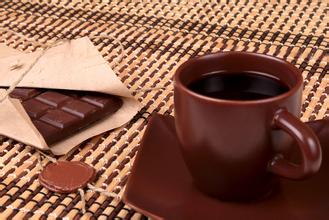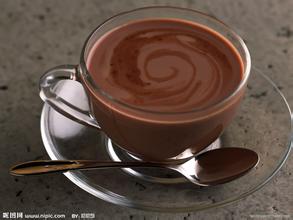Introduction to the characteristics of coffee flavor description in San Pedro Manor, Puerto Rico
In 1898, the Spanish-American War broke out and Spain was defeated. According to the Treaty of Paris, Puerto Rico was ceded to the United States. The administrative jurisdiction of the United States over Puerto Rico first took the form of a military junta. During its two years of governance of the island, the junta established schools, roads, railways, hospitals and health facilities. In 1900, the United States Congress established civilian control over the island. One of the two chambers of the Governor, the Cabinet and the Puerto Rican legislature is appointed by the President of the United States. Puerto Ricans elect another chamber of the legislature and a commissioner based in the capital who will represent the interests of the island in Washington and have a voice but no vote in Congress. Puerto Ricans are also exempt from United States taxes. On November 6, 2012, Puerto Rico held its fourth referendum. The referendum consists of two rounds of voting. In the first round, Puerto Ricans voted on "whether they want to change the status quo in their relations with the United States". 1.8 million people were eligible to vote, 65000 gave up the first round of voting, and 54 per cent of those who took part in the vote supported a change of relationship. Subsequently, Puerto Ricans made a choice on how to make a change, with three options for voters to choose from: "become a state of the United States", "expand autonomy" and "full independence". In this round of voting, only 1.3 million people voted, 61% supported becoming the 51st state in the United States, about 33% wanted to expand autonomy, while only 5% were in favor of full independence
Puerto Rico has a low-wage system, with a per capita hourly wage of $4.20 in 1991. Still, manual workers earn more than workers in many other coffee-producing countries, as long as Hawaii and Yamaja are on a par. Another problem facing the Puerto Rican coffee industry is that Puerto Ricans have better employment prospects because of their relatively high cultural quality in the Caribbean. Yaocote's choice of coffee, which is grown only on three farms in the southwest of the island, is fragrant and has a long aftertaste. This kind of coffee is very expensive and its flavor is comparable to that of any other coffee variety in the world. In the Yauco area, the coffee is owned and operated by local plantation owners. The mountain climate here is mild, the plants have a long mature period (from October to February), and the soil is of high quality clay. Some old varieties of Arabica coffee beans are grown here, although the yield is lower than other varieties, but generally of high quality. People here have been using an ecological and intensive planting method, using only some low-toxic fertilizers and chemicals, and adopting mixed crop planting measures to make the soil more fertile. When it comes time to pick coffee beans, people walk back and forth between coffee trees, picking only fully ripe coffee beans, and then wash them in a roller device for 48 hours.
Today, Puerto Rican gourmet coffee has been exported to the United States, France and Japan. Coffee in this country is generally carefully cultivated, with pure taste, aroma and heavy granules, among which the best is among the world's famous brands. The best coffee is Yauco Selecto, which means "Selecto". Grand Lares Yauco is produced in the southwest of the island, while Lars coffee is produced in the south-central part of the island.
Yaocote's choice of coffee, which is grown only on three farms in the southwest of the island, is fragrant and has a long aftertaste. This kind of coffee is very expensive and its flavor is comparable to that of any other coffee variety in the world. In the Yauco area, the coffee is owned and operated by local planters. The mountain climate here is mild, the plants have a long mature period (from October to February), and the soil is of high quality clay. Some old varieties of Arabica coffee beans are grown here, although the yield is lower than other varieties, but generally of high quality. People here have been using an ecological and intensive planting method, using only some low-toxic fertilizers and chemicals, and adopting mixed crop planting measures to make the soil more fertile. When it comes time to pick coffee beans, people walk back and forth between coffee trees, picking only fully ripe coffee beans, and then wash them in a roller device for 48 hours.
Yaocote chose coffee beans to be preserved in shells before they were shipped, and the skins were not removed until the order was shipped to ensure the best freshness of the coffee. Relevant U.S. government staff, such as FDA and USEA, will also be present when the goods are submitted, and they work to monitor producers' compliance with federal regulations. There are also staff from the local evaluation board, who take 1 bag out of every 50 bags as samples and use international gauges to evaluate their quality.
Jaime Fortu Fortuno, president of the acting bank Escogido Yauco in Escoki, pays silent attention to all this work, even the smallest details, every year. Fortuno is an investment banker who graduated from Harvard Business School. He was determined to seize every opportunity to open up a top coffee market in Puerto Rico. He expects a maximum annual output of 3000 bags of 45kg each, less than 1 per cent of the island's total coffee production.
Yaocote selected is a fascinating coffee, it has a complete flavor, no bitterness, rich nutrition, rich fruit, and is worth tasting. Even Thales (Taylors) in Harrogate, England, once imported 50 bags of Yaoke specialty coffee.

Important Notice :
前街咖啡 FrontStreet Coffee has moved to new addredd:
FrontStreet Coffee Address: 315,Donghua East Road,GuangZhou
Tel:020 38364473
- Prev

Introduction to the characteristics of the coffee producing area of the balanced Hasunda Coffee Garden in Ecuador
Ecuadorian coffee has distinctive South American coffee characteristics. The fragrance is soft, as if you can go back to the ancient and mysterious Inca empire. Coffee is a good history, you need to savor it carefully in order to understand the vicissitudes of life. Balanced with low acidity and rich aroma. The bitter taste is not obvious, the taste is clear, but there is a lingering aftertaste for a long time. Excellent
- Next

Introduction to the Flavor description of Fine Coffee beans in the Coffee Variety producing area of Manor Atlanta, Jamaica
It is necessary to take a closer look at the myth of Blue Mountain Coffee, because the image of the past is often inconsistent with the reality of today. In 1725, Sir Sir Nicholas Lawes brought the first Blue Mountain Coffee species from Martinique to Jamaica and planted them in the St.Andrew area. Today, the producing area of St. Andrew is still the Blue Mountains.
Related
- Does Rose Summer choose Blue, Green or Red? Detailed explanation of Rose Summer Coffee plots and Classification in Panamanian Jade Manor
- What is the difference between the origin, producing area, processing plant, cooperative and manor of coffee beans?
- How fine does the espresso powder fit? how to grind the espresso?
- Sca coffee roasting degree color card coffee roasting degree 8 roasting color values what do you mean?
- The practice of lattes: how to make lattes at home
- Introduction to Indonesian Fine Coffee beans-- Java Coffee producing area of Indonesian Arabica Coffee
- How much will the flavor of light and medium roasted rose summer be expressed? What baking level is rose summer suitable for?
- Introduction to the characteristics of washing, sun-drying or wet-planing coffee commonly used in Mantenin, Indonesia
- Price characteristics of Arabica Coffee Bean Starbucks introduction to Manning Coffee Bean Taste producing area Variety Manor
- What is the authentic Yega flavor? What are the flavor characteristics of the really excellent Yejasuffi coffee beans?

